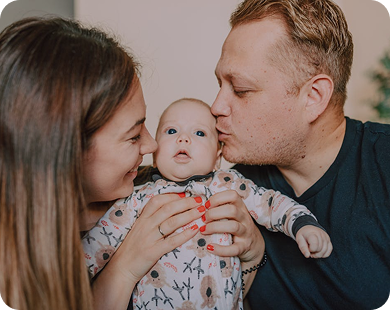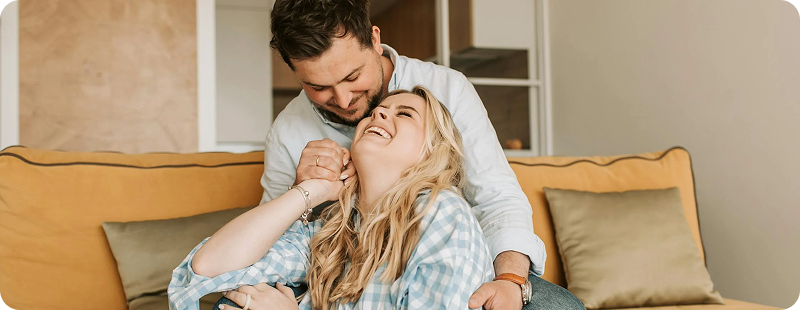Egg sharing represents one of the most emotionally complex decisions in fertility treatment, where your generosity can help another woman achieve motherhood while potentially advancing your own fertility journey. Understanding both the emotional rewards and challenges of this decision will help you make the choice that feels right for your unique situation.
Understanding Egg Sharing: What It Really Means
Egg sharing is a fertility treatment arrangement where you donate some of your eggs to help another woman conceive while using the remaining eggs for your own IVF treatment. This collaborative approach can make fertility treatment more accessible while creating opportunities for multiple families to grow.
The process involves careful coordination between you and your recipient, with both parties undergoing comprehensive medical and psychological evaluations. Your eggs are retrieved during a single cycle, then divided between your treatment and the recipient's needs based on predetermined agreements.
| Aspect | Your Treatment | Recipient's Treatment |
|---|---|---|
| Egg Allocation | 50-70% typically | 30-50% typically |
| Treatment Costs | Significantly reduced | Standard donor egg costs |
| Success Rates | Based on your age/health | Based on your egg quality |
| Legal Requirements | Comprehensive counseling | Comprehensive counseling |
The Positive Emotional Journey of Egg Sharing
Many women find profound meaning in egg sharing decisions, describing feelings of empowerment and purpose that extend beyond their own fertility goals. The knowledge that your generosity directly contributes to another family's dreams can create lasting emotional rewards.
Research by Dr. Susan Golombok at Cambridge University (2018) found that egg sharers often report higher satisfaction levels with their fertility treatment experience compared to traditional IVF patients, citing the meaningful nature of their contribution as a significant factor in their overall well-being.
The positive aspects many women experience include a sense of community with their recipient, reduced financial burden making treatment accessible, and the knowledge that unused eggs serve a meaningful purpose rather than being discarded.
Navigating Potential Regrets and Emotional Challenges
While many egg sharers report positive experiences, it's important to acknowledge that complex emotions can arise. Some women experience unexpected feelings about sharing genetic material or wonder about the children born from their donated eggs.
Common emotional challenges include concerns about future contact with donor-conceived children, feelings of attachment to donated eggs that weren't anticipated, and anxiety about the recipient's pregnancy outcomes when your own treatment may not succeed.
| Emotional Challenge | Frequency | Management Strategy |
|---|---|---|
| Attachment to donated eggs | 30-40% of sharers | Pre-treatment counseling |
| Anxiety about recipient outcomes | 25-35% of sharers | Clear communication boundaries |
| Regret about sharing decision | 10-15% of sharers | Ongoing psychological support |
| Identity concerns | 20-30% of sharers | Support groups and counseling |
Making an Informed Decision: Key Considerations
Your decision about egg sharing should be based on thorough understanding of both medical and emotional implications. Consider your personal values, financial situation, and emotional readiness for the complexities that may arise.
Important factors include your age and egg quality, as younger women typically produce more eggs suitable for sharing. Your emotional support system plays a crucial role, as does your comfort level with potential future contact from donor-conceived children.
Financial considerations often influence this decision, as egg sharing programs can reduce treatment costs by 50-70%. However, this financial benefit should never be the sole reason for participating.
The Medical Ethics of Egg Sharing
Ethical considerations in egg sharing center on informed consent, fair treatment of all parties, and ensuring that financial incentives don't compromise decision-making. Medical professionals must ensure that both sharers and recipients fully understand the implications of their choices.
According to the American Society for Reproductive Medicine guidelines, ethical egg sharing programs must provide comprehensive counseling, fair allocation of eggs, and clear legal frameworks protecting all parties involved.
Key ethical principles include ensuring your medical care isn't compromised by sharing arrangements, maintaining confidentiality while allowing for necessary medical communication, and providing equal access to high-quality treatment regardless of sharing status.
Success Rates and Realistic Expectations
Success rates in egg sharing depend primarily on your age and overall reproductive health. Women under 35 who share eggs typically see success rates comparable to standard IVF, while the recipients benefit from younger, high-quality eggs regardless of their own age.
| Sharer Age | Live Birth Rate (Sharer) | Live Birth Rate (Recipient) | Eggs Retrieved (Average) |
|---|---|---|---|
| Under 30 | 45-50% | 50-55% | 15-20 |
| 30-35 | 35-45% | 45-50% | 12-18 |
| 35-37 | 25-35% | 40-45% | 10-15 |
| Over 37 | 15-25% | 35-40% | 8-12 |
It's important to understand that sharing eggs means fewer for your own treatment, which may impact your chances if you have a lower ovarian reserve. However, many programs ensure you receive adequate eggs for a reasonable chance of success.
Legal and Future Considerations
Legal frameworks surrounding egg sharing vary by location, but most programs establish clear agreements about future contact, parental rights, and medical information sharing. Understanding these legal boundaries is essential before proceeding.
Future considerations include the possibility that donor-conceived children may seek contact when they reach adulthood, ongoing medical information sharing requirements, and potential emotional connections that may develop over time.
Many programs now offer guidance on future disclosure to help families navigate these complex relationships with confidence and clarity.
Support Systems and Emotional Preparation
Successful egg sharing experiences often depend on strong support systems and thorough emotional preparation. This includes professional counseling, peer support groups, and clear communication with your partner and family about your decision.
Professional counseling should address your motivations for sharing, expectations about the process, and strategies for managing complex emotions that may arise. Many clinics require multiple counseling sessions before proceeding with treatment.
Peer support through online communities and support groups can provide valuable insights from women who have navigated similar experiences. These connections often prove invaluable during treatment and beyond.
When Egg Sharing May Not Be Right for You
Egg sharing isn't appropriate for everyone, and recognizing when it's not the right choice is equally important. Women with certain medical conditions, limited ovarian reserve, or significant emotional concerns about sharing may be better served by other treatment options.
Factors that may indicate egg sharing isn't suitable include having fewer than 8-10 eggs expected at retrieval, significant anxiety about genetic connections, or pressure from financial circumstances rather than genuine desire to help others.
| Consideration | Egg Sharing Suitable | Alternative Recommended |
|---|---|---|
| Expected egg yield | 12+ eggs | Under 10 eggs |
| Emotional readiness | Comfortable with sharing | Significant anxiety present |
| Support system | Strong support network | Limited emotional support |
| Financial motivation | Desire to help others | Solely financial reasons |
Frequently Asked Questions About Egg Sharing
Will I have enough eggs for my own treatment if I share? Reputable programs ensure you receive adequate eggs for a reasonable chance of success, typically 50-70% of retrieved eggs. Your doctor will assess your expected response before recommending sharing.
Can I change my mind about sharing before egg retrieval? Yes, you can withdraw from sharing arrangements before the retrieval procedure. However, this may affect your treatment costs and timing.
What if my treatment fails but the recipient's succeeds? This scenario can be emotionally challenging. Comprehensive counseling helps prepare for this possibility and provides ongoing support if it occurs.
Will I know if the recipient becomes pregnant? This depends on your program's policies and your preferences. Some programs provide general updates while maintaining anonymity, while others offer more detailed communication.
Can children born from my donated eggs contact me in the future? Legal frameworks vary, but many jurisdictions now allow donor-conceived children to access identifying information when they reach adulthood. Your counselor will explain the specific laws in your area.
Making Your Decision with Confidence
The decision to participate in egg sharing is deeply personal and should align with your values, circumstances, and emotional readiness. Take time to thoroughly explore your feelings, discuss concerns with professionals, and ensure you have adequate support throughout the process.
Remember that there's no universally right or wrong choice - only what's right for you and your family. Whether you choose to share eggs, pursue donor egg treatment, or explore other options, the most important factor is that your decision feels authentic to your values and circumstances.
Quality fertility clinics will support whatever decision you make, providing comprehensive information, emotional support, and excellent medical care regardless of your treatment path. Your journey to parenthood deserves respect, understanding, and the highest standard of care.
Considering IVF treatment? Avida Fertility is here to support and guide you on your fertility journey. Reach out today for a personalized consultation and take the first step towards building your family with confidence.






.png)







.svg)
.svg)
